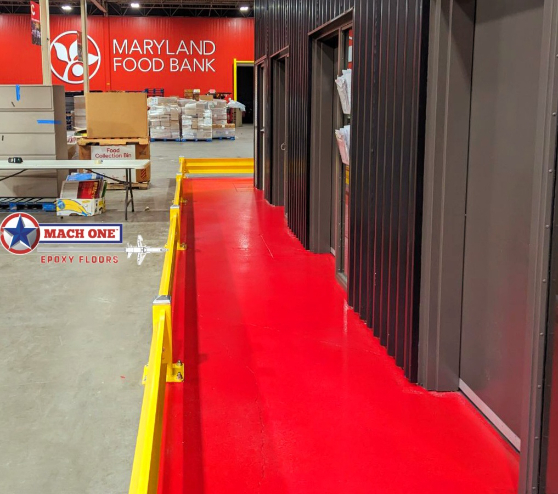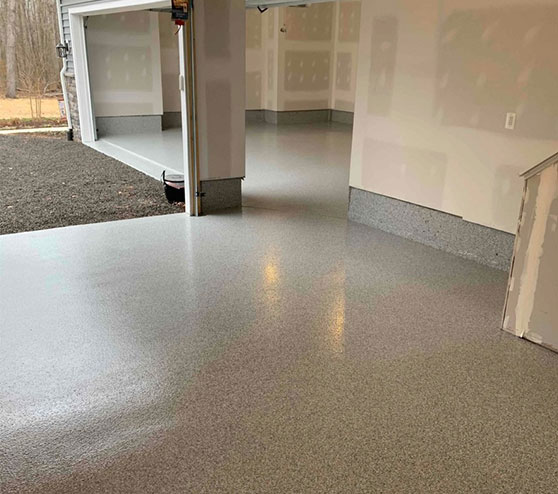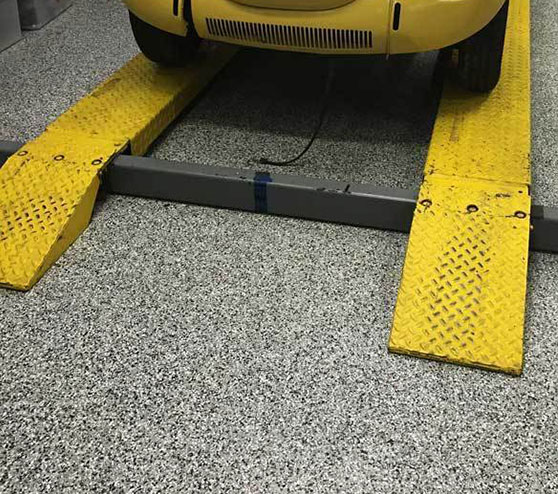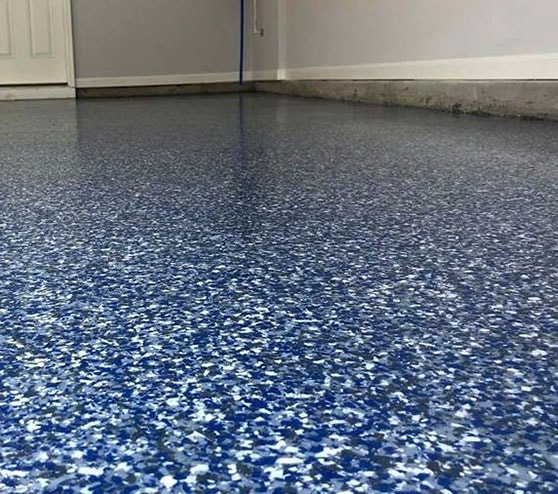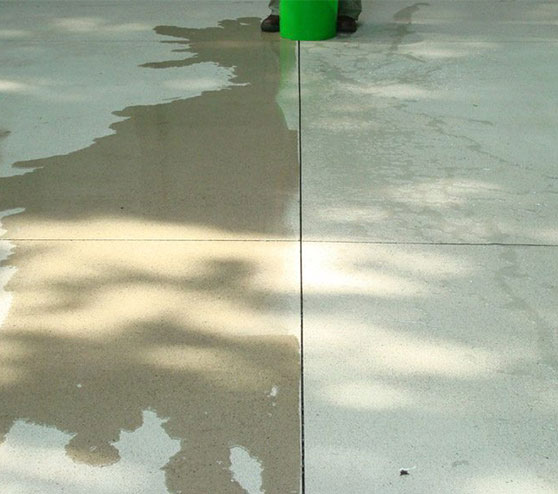
Concrete Driveway Sealing Project
This photo perfectly depicts the impact concrete sealing has on driveways. To the left, you see regular, unsealed concrete and to the right, you see sealed concrete. After we dumped a bucket of water on the driveway, the unsealed concrete quickly absorbed the liquid, whereas the treated concrete repelled the water.
You may be wondering, “What’s the big deal if the concrete absorbs the water?” Well, during freeze and thaw cycles, water expands up to 9% putting pressure on the concrete surrounding the water. This can often lead to cracks and damage to the concrete surface. Additionally, if the driveway is absorbing water, it’s also likely absorbing oil, road salts, fertilizer, gasoline, and acidic rain; all of which can lead to some major issues.
This photo perfectly depicts the impact concrete sealing has on driveways. To the left, you see regular, unsealed concrete and to the right, you see sealed concrete. After we dumped a bucket of water on the driveway, the unsealed concrete quickly absorbed the liquid, whereas the treated concrete repelled the water.
You may be wondering, “What’s the big deal if the concrete absorbs the water?” Well, during freeze and thaw cycles, water expands up to 9% putting pressure on the concrete surrounding the water. This can often lead to cracks and damage to the concrete surface. Additionally, if the driveway is absorbing water, it’s also likely absorbing oil, road salts, fertilizer, gasoline, and acidic rain; all of which can lead to some major issues.
REQUEST A QUOTE ON YOUR
NEXT PROJECT
"*" indicates required fields

